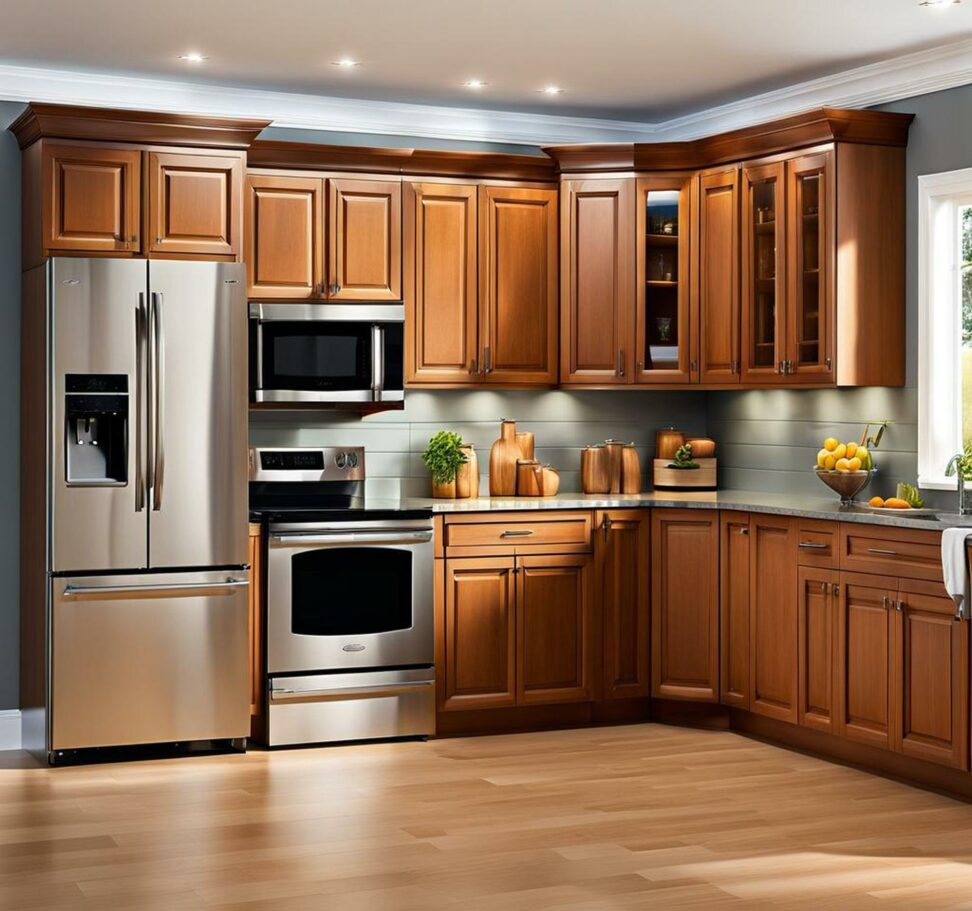What are the Most Popular Standard Kitchen Cabinet Sizes?
When designing a kitchen, choosing the right cabinet sizes is one of the most important decisions. The standard kitchen cabinet sizes you select will have a big impact on the room's storage, functionality, and aesthetics.
Kitchen cabinet sizes typically refer to the width, height, and depth dimensions of base and wall cabinets. Knowing the most popular standard sizes can help you optimize your kitchen layout and pick sizes that work best for your space.
Standard Base Cabinet Widths
Base cabinets run along the floor and support the kitchen countertops. They tend to get used more frequently than wall cabinets, so their width is key for workflow and storage.
Here are the most common standard base cabinet widths:

- 12 inches - Great for tight spaces
- 15 inches - Provides a little more room
- 18 inches - Typical width for sinks and small appliances
- 24 inches - Very popular standard size
- 30 inches - Also very common in many kitchens
- 36 inches - Provides abundant storage
In general, larger kitchens will use wider standard cabinet sizes like 30 or 36 inches for more capacity. Smaller galley kitchens often work best with narrower 15-24 inch widths.
Choosing Base Cabinet Widths
The standard base cabinet widths you choose should be informed by:
- Your overall kitchen size and layout
- What you intend to store in the cabinets
- Any appliances or sinks to accommodate
- Optimal kitchen workflow
Here are some general guidelines depending on kitchen shape:
- Galley kitchens - Use 15 to 24 inch widths
- L-shaped - 24 to 30 inches works well
- U-shaped - Consider wider 30 to 36 inch cabinets
Standard Base Cabinet Heights
The standard height for base kitchen cabinets is 34 1/2 to 36 inches.
This is measured from the floor up to the top of the countertop surface the cabinets are supporting. Having a 36 inch standard height provides good ergonomics for working at the counter.
Factors in Cabinet Height
Some of the factors that influence base cabinet height include:
- Standard countertop heights
- Matching cabinet height to appliances like dishwashers or ranges
- Accommodating wheelchair access
- The height of the homeowner
In some cases, you may want to adjust the height up or down a few inches from the 36 inch standard. For example, taller homeowners sometimes prefer a 38 inch height.
Standard Base Cabinet Depths
For base cabinet depths, 12 and 24 inches are the two standard options.
A 12 inch standard depth fits well in smaller kitchen settings. The deeper 24 inch depth provides substantially more storage capacity for larger pots, pans, and other cooking items.
Choosing Depths
Consider the following when selecting standard cabinet depths:
- 12 inches for galley or apartment kitchens
- 24 inches for larger kitchens needing more space
- The overall footprint of the kitchen
Keep in mind that custom depths are also an option if you need something in between the standards.
Standard Wall Cabinet Sizes
Wall cabinets are mounted above countertops and often used for dishes, glasses, and less-used kitchen items. Their widths generally match the base cabinet sizes below them.
Common standard widths include:
- 12, 15, 18, 24, 30, and 36 inches
Wall cabinet heights can range anywhere from 12 to 48 inches depending on your kitchen ceiling height and personal preference. The most common options are:
- 30 to 36 inches above the countertop
- In 3 inch height increments
Be sure to account for range hoods and other appliances when selecting wall cabinet heights.
Standard Pantry Sizes
For deep kitchen storage, many homeowners opt for a pantry cabinet. Typical standard sizes are:
- 24-36 inches wide
- 84-96 inches tall
This provides abundant and organized room for food, baking ingredients, small appliances, and more. Custom pantry cabinet sizes are also an option.
When planned properly, the standard kitchen cabinet sizes can be combined to create unique kitchen layouts with optimized storage and functionality. Don't be afraid to mix and match different widths and heights to design your ideal space.
Focus on choosing cabinet dimensions that suit your cooking needs, kitchen workflow, and lifestyle. With smart planning and design, you can use standard sizes to create a custom look and enjoy the kitchen of your dreams.